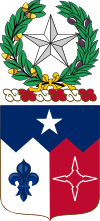OKLAHOMBI Joseph - 1483609 (NA)
OUR REFERENCE / NOTRE REFERENCE : 95252
| RANK / GRADE |  |
PRIVATE FIRST CLASS |
| REGIMENTAL NUMBER / MATRICULE | 1483609 | |
BIRTH AND DEATH INFORMATION / INFORMATION DE NAISSANCE ET DE DÉCÉS
 |
DATE OF BIRTH (DD/MM/YYYY) DATE DE NAISSANCE |
01/05/1894 |
| CITY / VILLE | Kiamichi mountain | |
| STATE / PROVINCE | Oklahoma | |
| COUNTRY / PAYS | USA |
| ETHNIC GROUP - ETHNIE | Native American |
| NATIONALITY - NATIONALITÉ | Choctaw |
| GENDER / GENRE | Men |
| DATE OF DEATH - DATE DE DÉCÉS (DD/MM/YYYY) | 13/04/1960 |
| AGE | 65 |
| CAUSE | natural |
| CEMETERY - CIMETIERE | |
| NAME / NOM | Yashau Cemetery |
| CITY / VILLE | Broken bow |
| STATE / ETAT | Oklahoma |
| COUNTRY / PAYS | USA |
| GRAVE / SEPULTURE | Row 1 |
CIVIL LIFE INFORMATION / INFORMATION SUR LA VIE CIVILE
| WORK / TRAVAIL | Farmer / fermier |
| FATHER - PERE | MOTHER - MERE | SPOUSE / HUSBAND - EPOUSE / EPOUX |
| agnes watkins oklahombi |
MILITARY LIFE INFORMATION / INFORMATION SUR LA VIE MILITAIRE
| WAR / GUERRE |
1914 -1918 : 1st WORLD WAR - 1ere GUERRE MONDIALE |
|
DRAFT OR VOLUNTEER CONSCRIT OU VOLONTAIRE |
SERVICE OVERSEAS SERVICE OUTRE MER |
PRISONER OF WAR PRISONNIER DE GUERRE |
CITIZEN CITOYEN |
| Draft | yes | no | yes |
| WOUNDS / BLESSURES |
| ENLISTMENT / ENROLEMENT | |
| DATE (DD/MM/YYYY) | 25/05/1918 |
| PLACE / LIEU | |
| UNITÉ / UNIT | |
| AGE | |
| DISCHARGE / DEMOBILISATION | |
| DATE (DD/MM/YYYY) | 19/06/1919 |
| PLACE / LIEU | |
| CAUSE | Honorable Discharge |
| TRANSFER / TRANSFERT | |
| DATE AND UNIT / DATE ET UNITÉ | DATE AND RANK / DATE ET GRADE |
| HOSPITAL / HOPITAL | |
| DATE (DD/MM/YYYY) | CAUSE |
| BATTLE / BATAILLE | |||
 FIGHTING / A COMBATTU FIGHTING / A COMBATTU |
 AWARDS / MÉDAILLES AWARDS / MÉDAILLES |
 DEAD / DÉCÉS DEAD / DÉCÉS |
 WOUNDS / BLESSURES WOUNDS / BLESSURES |
 |
MEUSE ARGONNE : 26 september - 11 november 1918 |
AWARDS / DECORATIONS
| French War Cross | Silver Star | WW1 Victory Medal |
VARIOUS INFORMATION / INFORMATIONS DIVERSES
|
AVAILABLE DOCUMENTS / DOCUMENTS DISPONIBLES
|
DOCUMENTS AVAILABLE DOCUMENTS DISPONIBLES |
NUMBER AVAILABLE NOMBRE DISPONIBLE |
LINK TO THE DOCUMENT / LIEN VERS LE DOCUMENT |
| ENLIST PAPER / FEUILLE D'ENROLEMENT | 3 | |
| SOLDIER PICTURES / PHOTO DU SOLDAT | 5 | |
| CEMETERY PLAN / PLAN DU CIMETIERE | ||
| GRAVE PICTURE / PHOTO DE LA TOMBE | 1 | |
|
CANADIAN REMEMBER BOOKS LIVRE DU SOUVENIR CANADIEN |
||
| OTHER DOCUMENTS / DOCUMENTS DIVERS | 7 | |
| MILITARY FILES / DOSSIER MILITAIRE |
SOURCES
| Researched and compiled by CASTELNOT yann |
Last edited: 05/08/2023

